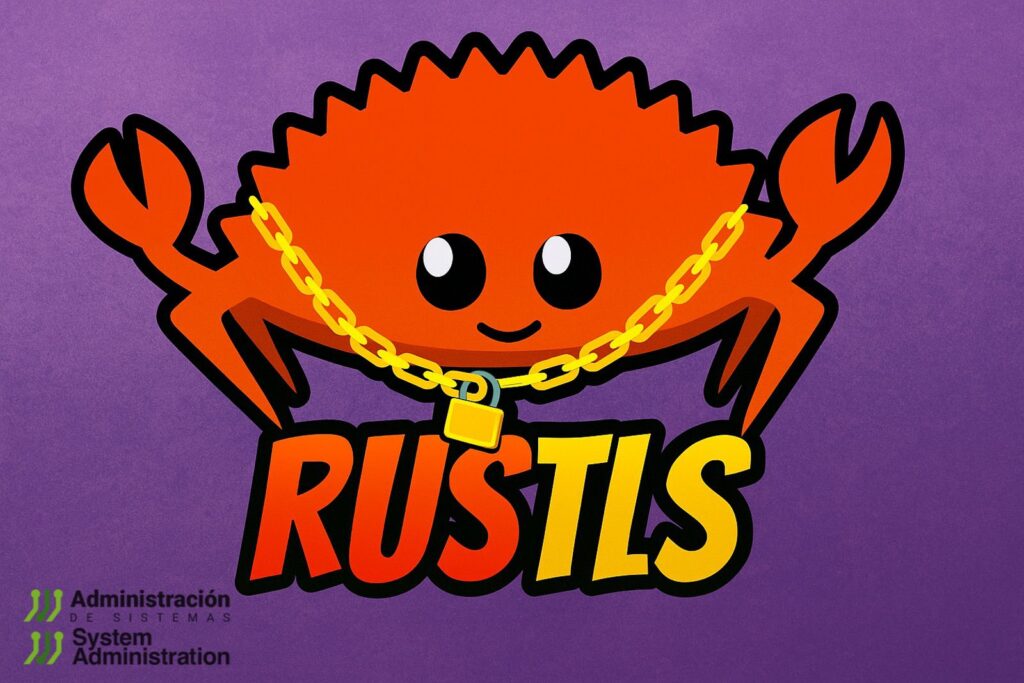Security in digital communications relies heavily on libraries implementing the TLS (Transport Layer Security) protocol, a standard essential for protecting data on the web. For decades, OpenSSL has dominated this space, though its legacy C codebase has made it vulnerable to memory management errors. In response to these challenges, Rustls has emerged as a modern, robust alternative developed in Rust, a language designed with memory safety as a priority.
A Necessary Shift: From C Legacy to Rust’s Memory Safety
The Internet Security Research Group (ISRG) began working on Rustls after recognizing the low likelihood that OpenSSL would transition to safer memory practices. Written entirely in Rust, Rustls offers comprehensive protection against typical C vulnerabilities such as buffer overflows and pointer errors—issues that have historically led to serious security incidents across the Internet ecosystem.
Thanks to sustained investment, with contributions from experts and organizations like Prossimo and Ferrous Systems, Rustls has matured into a high-performance TLS library with support for both client and server use cases, and with growing compatibility across industry standards.
Technical Features and Security-First Approach
Rustls is engineered for advanced cryptographic security, eliminating insecure configurations and outdated algorithms by default. The library implements both TLS 1.2 and TLS 1.3—the most widely used versions today—and offers both Rust and C APIs, enabling a smooth transition for legacy applications that previously relied on OpenSSL.
Key features include:
- Cross-Platform Compatibility: Rustls runs on various operating systems and architectures. It allows replacement of the cryptographic primitives provider, supporting third-party options such as BoringSSL, MbedTLS, WolfCrypt, and others to meet regulatory or performance requirements.
- No Insecure Defaults: Rustls is designed to avoid exposing options that could compromise security, allowing developers to adopt it securely without complex configuration.
- Continuous Updates and Roadmap: The project maintains a public roadmap and a detailed changelog, with improvements like support for new TLS extensions, better OpenSSL compatibility, and ongoing performance optimization.
- Flexible Licensing: Rustls is released under Apache 2.0, MIT, and ISC licenses, making it accessible for both commercial and open-source projects.
Focus on Performance and Compatibility
Recent versions of Rustls have demonstrated competitive performance in servers handling large numbers of simultaneous connections, matching or surpassing traditional alternatives. The development team prioritizes optimizing CPU usage, latency, and memory efficiency, with the explicit goal of outperforming OpenSSL in all areas.
Rustls has also introduced an OpenSSL compatibility layer, allowing existing projects to migrate incrementally without major changes to their codebase. This compatibility is being constantly improved, further encouraging the shift to a more secure Internet infrastructure.
Adoption and Community
Rustls is already used in production by numerous organizations and projects, with its community growing steadily in recent years. The project is managed by a team of security and cryptography experts, and it actively encourages external contributions and reviews.
The development of Rustls has spurred the creation of third-party cryptographic providers, expanding its reach into sectors like cloud services, IoT, enterprise platforms, and industrial applications.
Future of Rustls and Development Priorities
Rustls’ roadmap for 2025 prioritizes ongoing performance improvements, enhanced compatibility with OpenSSL, and new features such as full server-side support for Encrypted Client Hello (ECH) and extensions focused on protocol privacy and efficiency.
There are also plans to reinforce compatibility with different cryptographic providers and expand asynchronous APIs for easier integration with modern, scalable applications.
Conclusion
The rise of Rustls marks a crucial step toward a safer, more resilient Internet ecosystem. By offering a modern, efficient, and secure alternative to OpenSSL—focusing especially on memory safety and ease of adoption—Rustls is emerging as a key solution for securing online communications in the years to come.
For developers, architects, and security professionals, migrating to Rustls represents a real opportunity to reduce risk and modernize critical infrastructure, laying the groundwork for a more reliable and protected Internet.
Sources: Memory Safety y Rustls Github.

